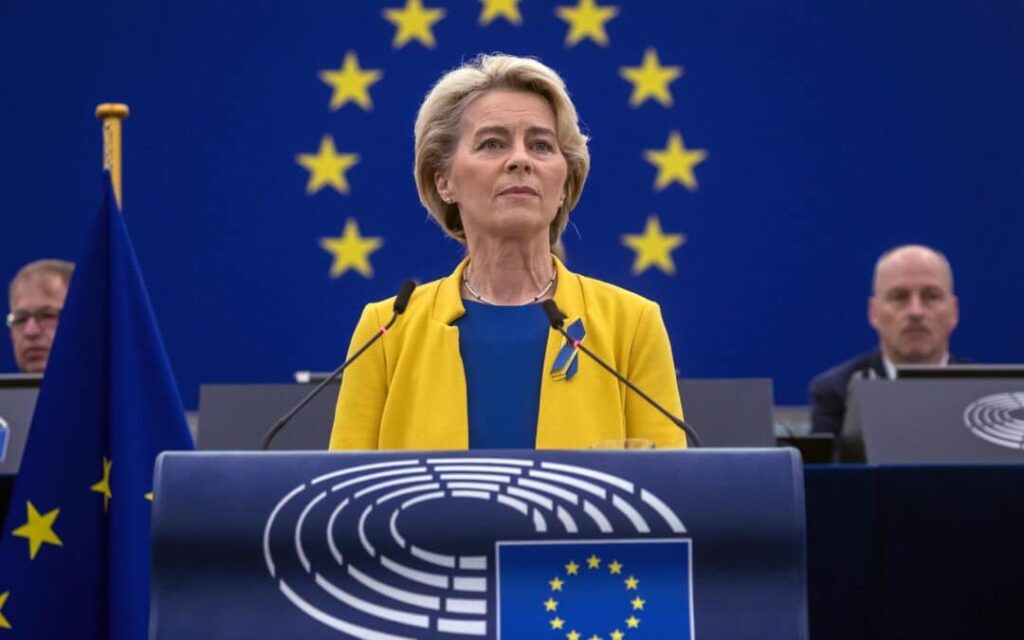The guidelines presented by the President of the European Commission, Ursula von der Leyen, highlight biotechnology and the revolution stemming from its innovations as fundamental to the future of the European Union.
On July 18, 2024, the President of the European Commission, Ursula von der Leyen, elected for a second term held between June 6 and 9, presented her policy directions for the next European Commission 2024-2029. These political guidelines, which will shape the future of the old continent, are set within a context characterized by “profound changes affecting our society and security, our planet, and our economy,” as stated by Von der Leyen. “The next five years will define the position that Europe will occupy in the world over the next five decades. They will determine whether we build our own future or let events or others shape it,” she warned.
In this regard, she refers to the “dangers of dependence or the fragility of supply chains,” experienced in recent events such as the Covid-19 pandemic, China’s monopoly on essential raw materials like chips and batteries, or what she defines as “Putin’s energy blackmail.” “Europe cannot afford to fall behind and lose its competitive edge in this race, nor present any weak flank,” she asserts.
In this vein, the President of the European Commission directly mentions biotechnology as one of the keys to ensuring the strategic autonomy of the European Union, as well as one of the driving forces for Europe’s future. “I want Europe to fully embrace the biotech revolution,” she states in the referred document. She emphasizes that biotechnologies, supported by artificial intelligence and digital tools, can help completely modernize sectors such as agriculture and forestry, energy, or health.
The commitment to biotechnology reflected in this document is evidenced by the proposal for a new European Biotechnology Law in 2025, aimed at facilitating the transition of biotechnology from the laboratory to the factory and its subsequent commercialization. This law will be part of a broader European Life Sciences Strategy to study how we can support our green and digital transitions and develop high-value technologies.
Facing the goal of leading innovation, the document expresses the need to create conditions that allow researchers to thrive. This objective requires providing the infrastructure and innovative laboratories needed to test and develop ideas, through new public-private partnerships, such as joint ventures. Talent is fundamental for this, and efforts will be made not only to attract new talents but to ensure that “the best and brightest minds stay in Europe,” by strengthening ties between research departments, higher education, and businesses, with particular reinforcement of alliances with universities. In this line, the expansion of the European Research Council and the European Innovation Council is announced.
In terms of investment, the European Commission aims to make a significant push by unlocking the necessary funding for green, digital, and social transitions. Among the proposals in the document is the presentation of a new European Competitiveness Fund as part of the European Commission’s proposal for a new and reinforced budget in the next multiannual financial framework. This instrument will enable investment in strategic technologies such as biotechnology, artificial intelligence, the space industry, or clean technologies, to ensure the development of strategic technologies and their manufacturing in Europe. Additionally, it will also allow the potential of the budget to be leveraged to boost and reduce the risks of private investment in common goals.
“In my opinion, the greatest challenges of our era, from security issues to climate change and competitiveness, can only be resolved through joint action. The threats we face are too great to address individually. The opportunities before us are too significant to seize separately,” warns the President of the European Parliament in her speech. Biotechnology plays a crucial role in this horizon, and its pivotal position for achieving strategic autonomy is firm, as evidenced by its presence not only in these community policy guidelines but also recently in the European Council’s Strategic Agenda 2024-2029.
Original news: Biotechnology holds a prominent role in the policy directions for the next European Commission 2024-2029 – AseBio (19/07/2024).
For BIOGA, it is a priority to promote intersectoral collaboration with other entities and to promote national and international networking activities. If you want to know more about us, please visit the following link.
- CEAMSA presents its FABRINTYSO project, smart and sustainable production to boost industrial competitiveness
- The Zendal Group launches the 5th edition of its International Zendal Awards for human and animal health projects.
- Hijos de Rivera beats on quantum computing and AI to research flavors of the future
- Galicia Biodays hosted more than 800 ‘one to one’ meetings
- Vigo, capital of biotechnology
- Bioga joins ACESABIO, the largest Spanish alliance in health and biosciences representing a dozen clusters and more than 1,000 entities
- Five Galician biotechs attend ‘Swiss Biotech Day’ with Bioga to explore ways of collaborating with the Swiss biotech ecosystem
- “Years ago it was difficult for Galician biotech to attract funds, now they call us”
- Santiago’s biotechnology sector seeks to project itself abroad in order to develop its full potential

